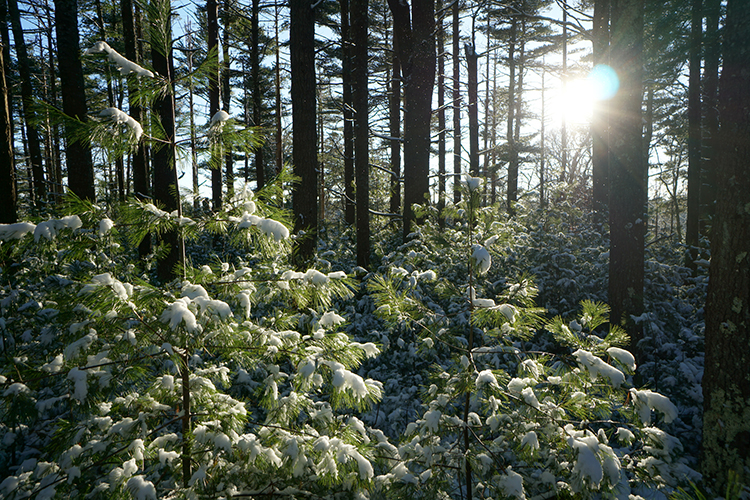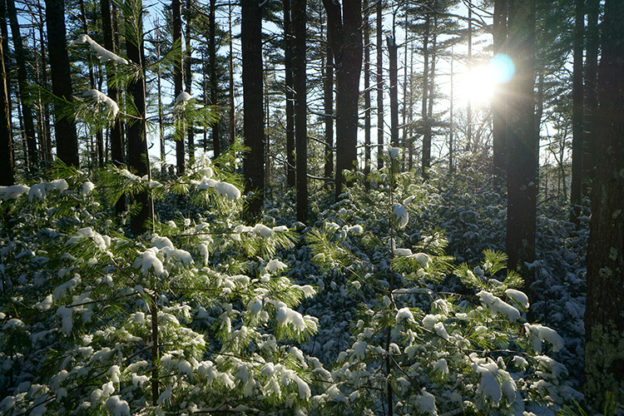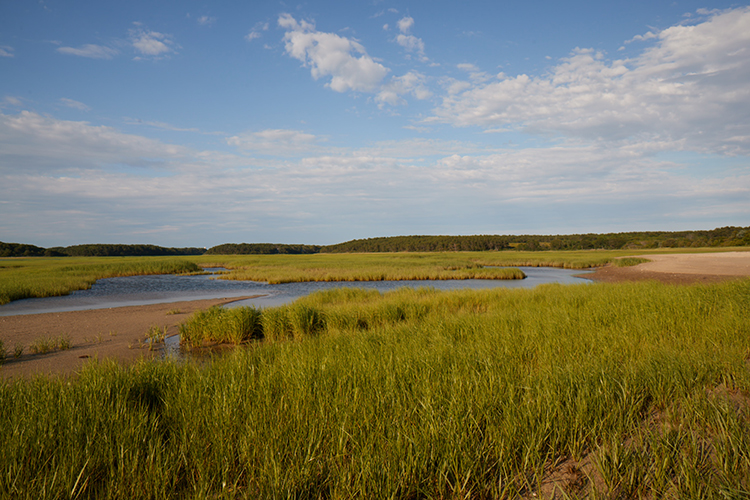This year, Thanksgiving weekend was filled with more than just food, football, friends, and family. On Black Friday, the Trump Administration released the Fourth National Assessment on Climate Change (NCA4), Volume 2.
The report, authored by a team of more than 300 federal and non-federal climate experts, focuses on climate change impacts, risks, and adaptations occurring in the U.S. It breaks down the variability of climate impacts across 10 regions, including the Northeast, and looks at 18 national topics, with particular focus on observed and projected risks under different mitigation pathways.
Like previous climate research, NCA4 emphasizes what we already know. Climate change is real, human- caused, and happening now. At this point, we also know a certain amount of warming is likely “locked in,” so adaptation strategies are crucial to the health of our ecosystems and communities. Nevertheless, the faster we reduce emissions from fossil fuel-emitting sources, the less risk we will face.

Changes in the Northeast
The Northeast is unique for many reasons. It’s home to diverse landscapes that support numerous industries, tourism, and ecosystems. It’s also considered the most densely populated region, as well as the most heavily forested region in the United States. Quintessential New England is characterized by beautiful coastal beaches, spectacular fall foliage, and a robust winter recreation industry along our snowy mountains.
Climate change is altering this picture.
Here are the top five takeaways from NCA4 for the Northeast region:
- Changing Seasons: Expect milder winters and earlier spring conditions in the coming years. These changes will alter forests, wildlife, snowpack, and streamflow, leading to cascading effects for our region’s rural industries. By 2035, the Northeast is projected to be more than 3.6°F warmer on average than during the preindustrial era. This would be the largest temperature increase in the contiguous United States.
- Changing Coasts: Our coasts support commerce, tourism, and recreation — serving as critical economic drivers. Warmer ocean temperatures, sea level rise, and ocean acidification are all expected as a result of climate change. Sea level rise in our region is expected to be the highest in the country.
- Urban Areas at Risk: The Northeast’s urban centers are important hubs for cultural and economic activity. Northeast cities and towns are threatened by strong and more frequent extreme weather events and sea level rise, leading to negative economic impacts and the need for extensive financial investment.
- Human Health Threatened: More extreme weather, warmer temperatures, lower air and water quality, and sea level rise will lead to increased emergency room and hospital visits, additional deaths, and lower quality of life. These impacts will be felt most heavily by our most vulnerable populations including the elderly and low income residents.
- Adaptation is Key & Underway: Communities across the region recognize the severity of climate change and are proactively planning and implementing actions that will reduce the risks posed by climate change. In the past, adaptation efforts have emerged at the microscale, but communities are increasingly seeing a need for larger-scale, multi-benefit adaptation projects.
Massachusetts Leading the Way
Recently, legislation was passed at the State House that helps protect public health, public safety, and the economy from the impacts of climate change, and allows communities to more readily adapt to the changes they are already seeing.
And the state’s Municipal Vulnerability Preparedness (MVP) program fosters climate adaptation practices at the local level and supports communities’ ability to prioritize actions and create a more resilient future. Learn more about what Massachusetts is doing to address climate adaptation here.
What Can You Do?
You can be part of the solution by reducing your own carbon footprint. The top five actions you can take are:
- Switch to clean, renewable energy sources. Find out how >
- Reduce the amount of time you spend in a single-occupied vehicle
- Alter your diet so you are less reliant on energy-intensive animal products
- Talk about it! The more we talk about climate change, the more we can build capacity in our community to address the problems we are already facing.
- Help your community develop plans to adapt to the greatest impacts of climate change via the MVP process, the local planning board, or your conservation commission
The old adage is true: Decisions are made by those who show up. It’s on us to show up and fight for climate action now!
— Alexandra Vecchio, Mass Audubon’s Climate Change Program Coordinator



